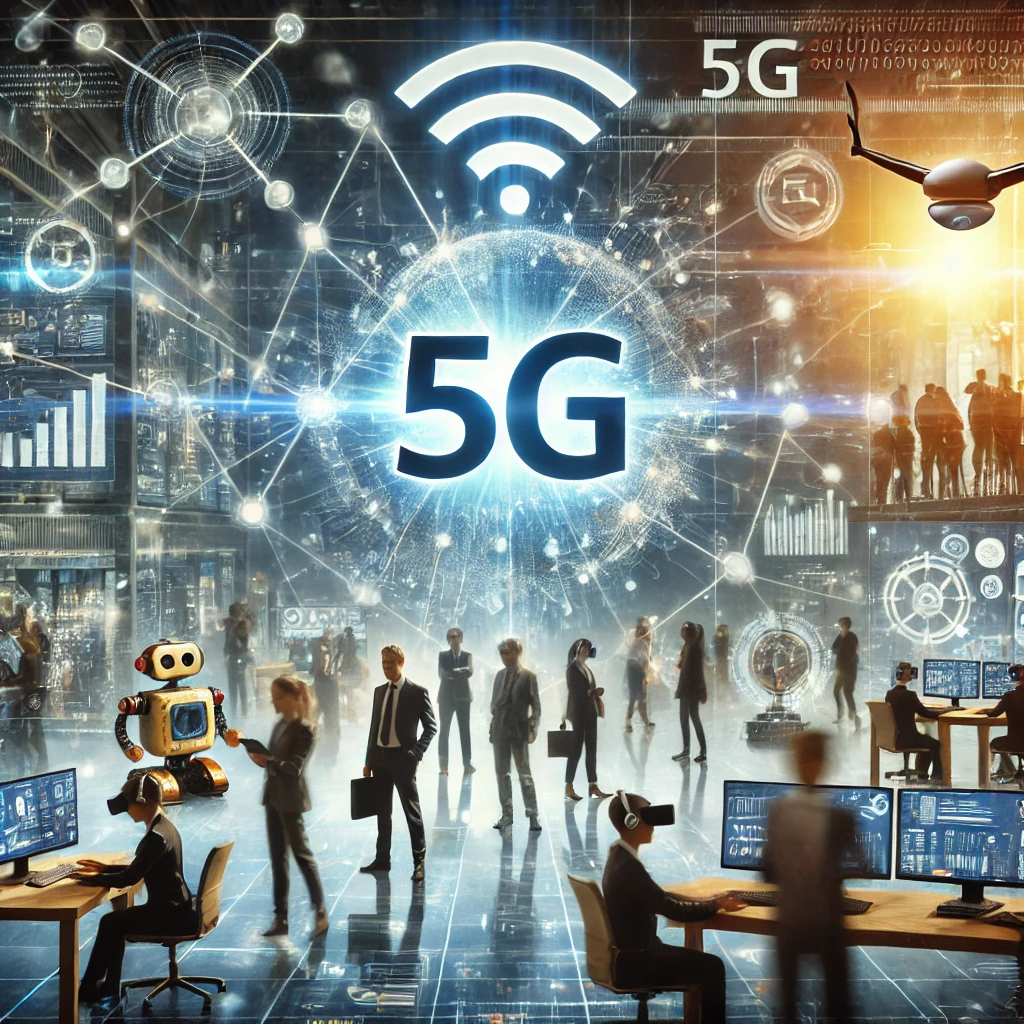.png)
Our customer support team is here to answer your questions. Ask us anything!
Chat with us on WhatsApp

Written By: Flipbz.org
In the world of business, staying ahead of the competition requires constant innovation. One of the most revolutionary advancements in recent years is the rollout of 5G technology. With its promises of faster speeds, reduced latency, and the ability to handle massive amounts of data, 5G is set to change the landscape of business operations across industries. From enhancing productivity to enabling new business models, 5G technology is a game-changer for companies looking to improve efficiency and customer experiences.
One of the primary benefits of 5G technology is the significant increase in speed compared to its predecessors. With speeds up to 100 times faster than 4G, businesses can now transfer vast amounts of data almost instantaneously. For industries like logistics and manufacturing, this can result in faster decision-making and improved operational efficiency.
For example, in supply chain management, 5G's speed can streamline the tracking of inventory, monitor real-time data from shipments, and automate processes like stock replenishment. This not only saves time but also reduces human error, leading to a more efficient and reliable workflow.
5G's capabilities also extend to customer-facing interactions. In industries like retail and hospitality, businesses can leverage 5G to provide immersive customer experiences. Virtual reality (VR) and augmented reality (AR) applications, for instance, can now run smoothly on mobile devices, allowing customers to interact with products in ways that were previously impossible.
Retailers can create virtual showrooms where customers can try out products from the comfort of their homes. Hotels can offer virtual tours of their facilities, providing potential guests with a more engaging way to explore services before booking. These innovations, powered by 5G, are not only engaging but also help businesses enhance customer satisfaction and increase sales.
The Internet of Things (IoT) is another area where 5G is making a significant impact. With its ability to connect millions of devices simultaneously, 5G is creating the foundation for smarter cities, factories, and offices. Businesses can now deploy IoT devices that collect and transmit data in real-time, providing valuable insights that help optimize operations.
For instance, in a smart factory, 5G-powered machines can communicate with each other, share data, and adjust production in real-time. This level of automation can lead to reduced operational costs, increased productivity, and faster response times to changes in demand or supply chain disruptions.
The high-speed, low-latency nature of 5G networks enables businesses to gather and process real-time data at an unprecedented scale. This is especially important for industries that rely on instant decision-making, such as finance, healthcare, and manufacturing. Real-time data analytics can provide businesses with the insights needed to respond to market trends, customer behavior, and operational performance on the fly.
In healthcare, for example, doctors can use 5G to access patient data instantly, enabling them to make quicker and more accurate diagnoses. In finance, investment firms can use real-time data to track market movements and make faster, more informed decisions, giving them a competitive edge.
The rise of remote work has made it clear that businesses need to adapt to new models of collaboration. 5G is playing a key role in making remote work more efficient by providing faster, more reliable internet connections. With 5G, video conferencing, cloud computing, and file-sharing can be done without lag or interruptions, even with high-definition video or large files.
This means businesses can maintain seamless collaboration across different locations, helping teams stay connected and productive regardless of where they are based. Moreover, 5G's speed enables cloud-based applications to run more efficiently, making it easier for businesses to adopt cloud solutions for everything from customer relationship management (CRM) systems to enterprise resource planning (ERP) software.
The widespread availability of 5G is also opening up new business models and opportunities. One such area is the expansion of 5G-enabled services, such as smart cities, autonomous vehicles, and remote surgeries. These services rely heavily on the fast, reliable data transmission that 5G provides, making them viable in ways they couldn't be before.
For businesses, this presents opportunities to innovate and create new products or services that leverage 5G technology. For instance, a transportation company could develop a fleet of autonomous vehicles that communicate with each other via 5G to improve safety and efficiency. Similarly, health tech companies could introduce telemedicine solutions that enable doctors to perform remote surgeries with minimal latency.
5G technology is poised to transform the way businesses operate, offering opportunities for increased efficiency, enhanced customer experiences, and new business models. From faster data transmission and real-time analytics to supporting automation and IoT, the benefits of 5G are vast and far-reaching. As 5G networks continue to roll out globally, businesses that embrace this technology will be better equipped to meet the demands of an increasingly digital and connected world.
Please register to comment.
With these components in place, your business...
The smm panel is a provider to top panels lik...
Discover promising partnership opportunities in various industries.
Pitch Your Startup | Find Partners
Comments